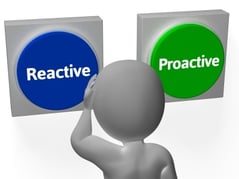Call center agents must field all sorts of inquiries – from standard “I want to purchase product XYZ” requests to complaints about a defective or missing piece of equipment, all the way to frustrated inquiries like “how exactly does this widget work?”. Satisfied, annoyed, angry, or uncertain customers: those are the variety of individuals who your call center agents must contend with.
For most businesses, it’s vitally important to have a total call recording system that can capture each and every call that comes in to your customer service and sales agents. Having a complete catalog of these calls – and being able to store them for a predetermined time – can serve a variety of purposes, both reactively and proactively.
On the reactive side, call recording can help to protect a business against a multitude of challenges. It can help:
Verify customer consent data, if a question arises about whether consent was given to transact an order. The fact is, sometimes customers forget they gave approval to charge their credit card, or sometimes they simply want a way to back out of a purchase after changing their mind. Recorded calls can also help to insulate a company from he-said/she-said disputes, in case there’s a debate about what was promised, what something cost, or any other matter where a customer believes they said one thing and an agent believes they said another.
Rescue customers about to defect, wherein retailers can set up a report that flags every call in which sales or support staff visits the “Cancel my account” page, or in which an account was actually closed. These calls can be sent to an account rescue team to help prevent the customer from leaving or to bring him or her back.
Confirm industry or regulatory compliance, because for retailers, compliance with PCI-DSS (Payment Card Industry Data Security Standard), which ensures credit card number privacy, is a top priority. With a library of recorded calls as a reference, retailers can make sure that agents are keeping to the full letter of the law in this regard.
In addition to these more reactive uses, recorded calls can also help businesses take proactive measures to improve their products, enabling them to:
Improve sales conversion: When telesales people have a particularly successful or challenging call, those calls can be shared with the rest of the sales team. Reviewing these calls can be especially valuable for motivating underperforming sales staff or training new sales staff.
Gain competitive intelligence data: Sometimes customers phone into a call center and, often unknowingly, share information about a retailer’s competition – as in, “I got a free such-and-such when I bought this from ABC Company.” This competitive intelligence can provide a sales and marketing organization with the insight they need to re-align campaigns. Agents can also keep this information in mind when other customers/prospects call in so they can anticipate how to address this response, perhaps by countering with a similar offer, for example.
Glean product information: Call recording systems allow retailers to run reports segmenting calls by product or product line. From these calls, retailers can learn what specific problems or concerns were cited by customers. This information can then be shared with the product development team so they can fix any glitches.
